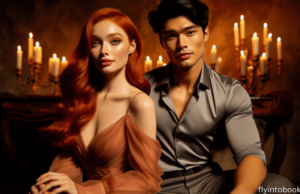Get Ready to Go on a Cultural Journey:
Join Our Newsletter and Discover Fascinating Destinations and Literary Adventures That Will Ignite Your Imagination!
Affiliate Disclosure: As an Amazon Associate, I earn from qualifying purchases. If you choose to purchase after clicking a link, I may receive a commission at no extra cost to you.
Introduction
In the realm of literature, certain works transcend time, culture, and borders, leaving an indelible mark on generations of readers. Korean literature boasts a rich tradition of remarkable authors who have contributed to the world of letters with their profound insights, vivid storytelling, and thought-provoking themes. Rediscovering classic works by iconic Korean authors allows us to delve into the cultural heritage of Korea and appreciate the literary treasures that have shaped the nation’s literary landscape. This article aims to shed light on some of these timeless literary gems and inspire readers to explore the works of these influential Korean authors.
Rediscovering Classic Works by Iconic Korean Authors: A Journey Through Time
1. The Vegetarian by Han Kang
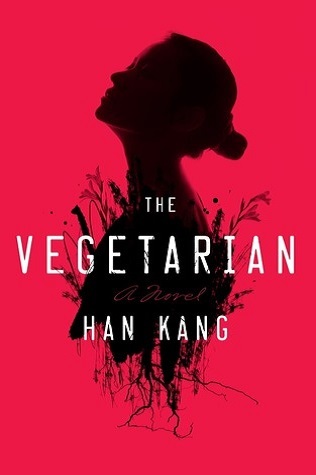
Han Kang’s The Vegetarian is a masterpiece that challenges societal norms and explores the complexities of human desire, identity, and rebellion. The novel follows Yeong-hye, a seemingly ordinary woman who decides to stop eating meat after a series of vivid dreams. As her unconventional choice disrupts her relationships and sparks profound changes within her, the story delves into themes of individuality, sacrifice, and the struggle against societal expectations.
Read These Recommended reads:
- The Incendiaries by R.O Kwon
- The Plotters By Unsu Kim
- White Chrysanthemum by Mary Lynn Bracht
- 20 Unforgettable Korean Novels That Will Change Your Life
2. Pachinko by Min Jin Lee
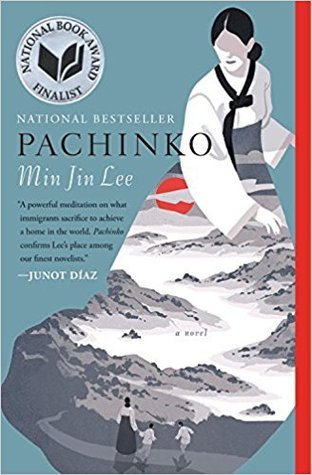
Min Jin Lee’s Pachinko offers an immersive and poignant saga that spans several generations of a Korean family. Set against the backdrop of historical events, the novel tells the story of Sunja, a young woman who finds herself entangled in a web of love, sacrifice, and resilience. Through the experiences of its characters, Pachinko explores themes of identity, discrimination, and the pursuit of the American dream.
Min Jin Lee Answers Your Burning Questions About ‘Pachinko’
3. Please Look After Mom by Kyung-sook Shin
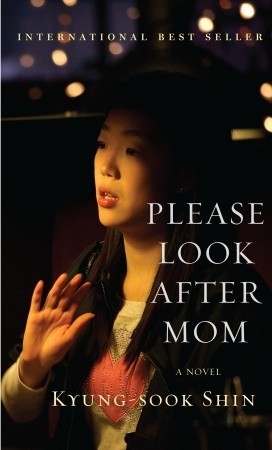
Kyung-sook Shin’s Please Look After Mom is a heartfelt exploration of family bonds and the sacrifices made by mothers. The story begins with the sudden disappearance of an elderly woman, leaving her family to confront their own negligence and reflect on their relationship with her. Through introspective prose, Shin crafts a tale that prompts readers to cherish their loved ones and acknowledge the quiet strength of mothers.
4. The Calligrapher’s Daughter by Eugenia Kim

Eugenia Kim’s The Calligrapher’s Daughter is a beautifully written novel that takes readers on a captivating journey through the tumultuous years of early 20th-century Korea. Set against the backdrop of Japanese colonial rule, the story revolves around Najin Han, the daughter of a renowned calligrapher, as she navigates societal expectations, political unrest, and personal aspirations.
Through rich and evocative prose, Eugenia Kim brings to life the vibrant world of pre-war Korea, immersing readers in a tale of love, family, and cultural identity. The Calligrapher’s Daughter explores themes of tradition, sacrifice, and the enduring power of art in the face of adversity.
The novel provides a poignant glimpse into the struggles faced by Koreans during a time of great change and upheaval. As Najin grapples with her own desires and the expectations placed upon her as a woman in a patriarchal society, readers are invited to reflect on the complexities of identity, the weight of familial duty, and the pursuit of personal fulfillment.
Eugenia Kim’s meticulous research and her ability to capture the essence of Korean culture make The Calligrapher’s Daughter a compelling and immersive reading experience. The novel offers a window into the history of Korea, shedding light on the resilience and determination of its people.
5. The Hen Who Dreamed She Could Fly by Sun-mi Hwang
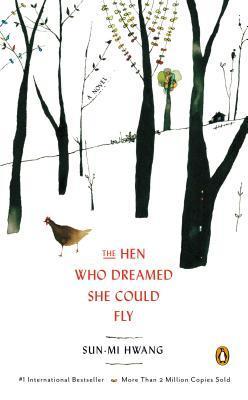
Sun-mi Hwang’s The Hen Who Dreamed She Could Fly is a charming fable that appeals to readers of all ages. Through the tale of a determined hen named Sprout, the novel explores themes of freedom, friendship, and the pursuit of dreams. Hwang’s enchanting storytelling style transports readers to a world where animals possess human-like qualities, while subtly delivering thought-provoking messages about life and self-discovery.
6. Human Acts by Han Kang
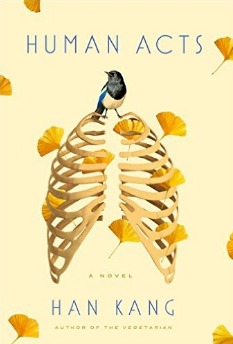
Han Kang’s Human Acts delves into the aftermath of the 1980 Gwangju Uprising, a tragic event in Korean history that shook the nation. Through interconnected stories, the novel examines the profound impact of the uprising on individuals and society as a whole. Human Acts tackles themes of trauma, resilience, and the enduring spirit of humanity, offering a poignant and introspective exploration of a dark chapter in Korean history.
Han Kang Interview: The Horror Of Humanity
7. The Guest by Hwang Sok-yong
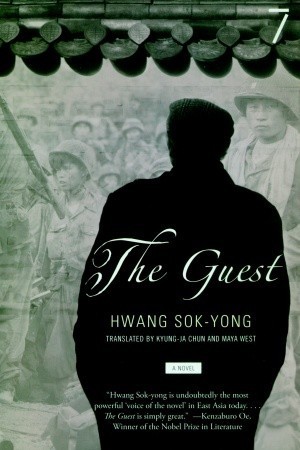
Hwang Sok-yong’s The Guest is a powerful novel that reflects on the social and political turmoil of Korea during the mid-20th century. The story revolves around a political prisoner who returns to his village after being released from prison. As he reconnects with the villagers and confronts his traumatic past, The Guest delves into themes of forgiveness, redemption, and the complexities of human nature.
8. The Dwarf by Cho Se-hui
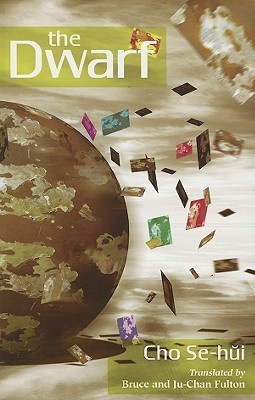
Cho Se-hui’s The Dwarf offers a poignant portrayal of the working-class struggle in post-war Korea. Through the eyes of a factory worker named Oh, the novel sheds light on the hardships and dehumanization experienced by laborers. The Dwarf serves as a social critique, addressing themes of inequality, exploitation, and the yearning for personal freedom and dignity.
9. The Soil by Yi Kwang-su
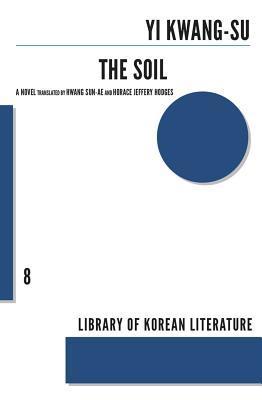
Considered a foundational work of modern Korean literature, Yi Kwang-su’s The Soil explores the clash between traditional values and the modernization of Korean society in the early 20th century. The novel follows the lives of three characters representing different social classes, and their interactions illuminate the struggles, aspirations, and dilemmas of the time. The Soil offers a deep exploration of cultural identity, social change, and the challenges of modernity.
10. A Ready-Made Life: Early Masters of Modern Korean Fiction by Chong-un Kim

“A Ready-Made Life: Early Masters of Modern Korean Fiction” by Chong-un Kim is a remarkable anthology that celebrates the pioneering authors who laid the foundation for modern Korean literature. This collection brings together the works of influential writers from the early 20th century, offering readers a fascinating insight into the evolution of Korean fiction.
Chong-un Kim, an esteemed literary scholar and critic, meticulously curates this anthology to showcase the literary genius of early Korean authors. Through their stories, readers are transported to a transformative era in Korean history and witness the birth of a new literary tradition.
The anthology features the works of renowned writers such as Yi Kwang-su, Kim Dong-in, and Ch’oe Myongik, among others. Each author presents a unique perspective and narrative style, exploring themes of social change, personal struggles, love, and the complexities of the human experience.
“A Ready-Made Life” not only showcases the literary prowess of these early masters but also provides valuable cultural and historical context. The stories serve as a reflection of the sociopolitical climate and the profound changes that swept through Korea during this period of modernization.
Chong-un Kim’s expertise as a scholar and his deep understanding of Korean literature enrich the anthology, offering readers insightful introductions and analysis of each author’s work. Through his guidance, readers gain a deeper appreciation for the literary techniques, themes, and contributions of these early masters.
Rediscovering Classic Works by Iconic Korean Authors: A Cultural Journey
Exploring the classic works by iconic Korean authors takes readers on a captivating cultural journey. These literary gems provide a window into Korean society, history, and the human condition. Through their unique perspectives, these authors tackle universal themes that resonate with readers worldwide.
| Author | Book Title |
|---|---|
| Yi Kwang-su | “The Heartless” |
| Kim Dong-in | “The Soil” |
| Ch’oe Myongik | “River” |
| Park Kyung-ni | “Toji” |
| Hwang Sun-won | “Cranes” |
| Kim Seung-ok | “Biting the Moon” |
| Yi Mun-yol | “The Poet” |
| Kang Kyung-ae | “Land” |
| Choi In-hun | “The Square” |
| Chong-un Kim | “A Ready-Made Life” |
The Significance of Rediscovering Classic Works
Rediscovering classic works by iconic Korean authors is not just a matter of literary appreciation; it is an act of preserving cultural heritage. These works serve as a bridge between generations, offering insights into the past while providing valuable lessons for the present and future.
Unearthing Hidden Treasures: Lesser-Known Works by Iconic Korean Authors
While some works by iconic Korean authors have gained international recognition, there are hidden treasures waiting to be discovered. Exploring lesser-known works allows readers to delve deeper into the literary legacy of these authors, uncovering hidden gems that showcase their versatility and creativity.
Rediscovering Classic Works: An Invitation to Korean Culture
Embracing classic works by iconic Korean authors opens the door to the rich tapestry of Korean culture. These literary masterpieces often intertwine with Korean traditions, values, and historical events, offering readers a multifaceted understanding of the country’s heritage.
Frequently Asked Questions (FAQs)
Q1: Where can I find English translations of classic Korean literature?
A1: Many classic works by iconic Korean authors have been translated into English, allowing readers around the world to access their brilliance. Libraries, online bookstores, and specialized translation publishers are excellent sources for English translations of Korean literature.
A2: Yes, several Korean authors have received international literary recognition. For example, Han Kang, author of The Vegetarian, won the Man Booker International Prize in 2016, bringing global attention to Korean literature. Other Korean authors, such as Kyung-sook Shin and Min Jin Lee, have also received prestigious awards and accolades for their works.
Han Kang’s “The Vegetarian” Wins The Man Booker International Prize in 2016
Q3: How can I further explore Korean literature beyond the classic works?
A3: Beyond the classic works, there is a wealth of contemporary Korean literature waiting to be discovered. Exploring the works of contemporary authors allows readers to engage with the current cultural and social issues of Korea. Book festivals, literary events, and online reading communities are excellent avenues to discover new voices in Korean literature.
Q4: What makes Korean literature unique and worth exploring?
A4: Korean literature offers a distinct perspective shaped by the country’s rich history, unique cultural traditions, and societal transformations. From tales of resilience during times of adversity to thought-provoking reflections on identity and family, Korean literature captures the essence of the Korean experience while resonating with universal themes that touch the human heart.
Q5: Can I appreciate and understand Korean literature even if I’m not familiar with Korean culture?
A5: Absolutely. While cultural context can enhance the reading experience, the themes, emotions, and universal human experiences depicted in Korean literature transcend cultural boundaries. Translations capture the essence of the original works, allowing readers from diverse backgrounds to engage with and appreciate Korean literature.
Q6: Are there any initiatives to promote Korean literature globally?
A6: Yes, there are various initiatives aimed at promoting Korean literature on a global scale. Organizations like the Literature Translation Institute of Korea (LTI Korea) actively support the translation and publication of Korean literary works, making them accessible to international readers. Literary festivals, exchange programs, and literary awards also contribute to the exposure and recognition of Korean literature worldwide.
Conclusion: Embarking on a Literary Voyage
Rediscovering classic works by iconic Korean authors is an enriching journey that invites readers to explore the depths of Korean culture, history, and the human condition. From the surreal and introspective narratives of Han Kang to the poignant and multi-generational sagas of Min Jin Lee, these authors offer a diverse array of perspectives and storytelling styles. By delving into their works, readers can gain profound insights, experience emotional resonance, and broaden their understanding of the world.
So, embark on a literary voyage through the works of these iconic Korean authors. Allow their words to transport you to different times, evoke powerful emotions, and ignite your imagination. Rediscovering classic works by iconic Korean authors is an invitation to appreciate the beauty and complexity of Korean literature and to embrace the universal power of storytelling.
Let me know below!!
Happy Reading!
A.J. McMahon
.
.
.
Let’s Connect!
– GoodReads: A.J. McMahon
– Instagram: FlyIntoBooks
– Pinterest: FlyIntoBooks
– Facebook: FlyIntoBooks
– Twitter: @FlyIntoBooks
Affiliate Disclosure: As an Amazon Associate, I earn from qualifying purchases. If you choose to purchase after clicking a link, I may receive a commission at no extra cost to you.
Get Ready to Go on a Cultural Journey:
Join Our Newsletter and Discover Fascinating Destinations and Literary Adventures That Will Ignite Your Imagination!


